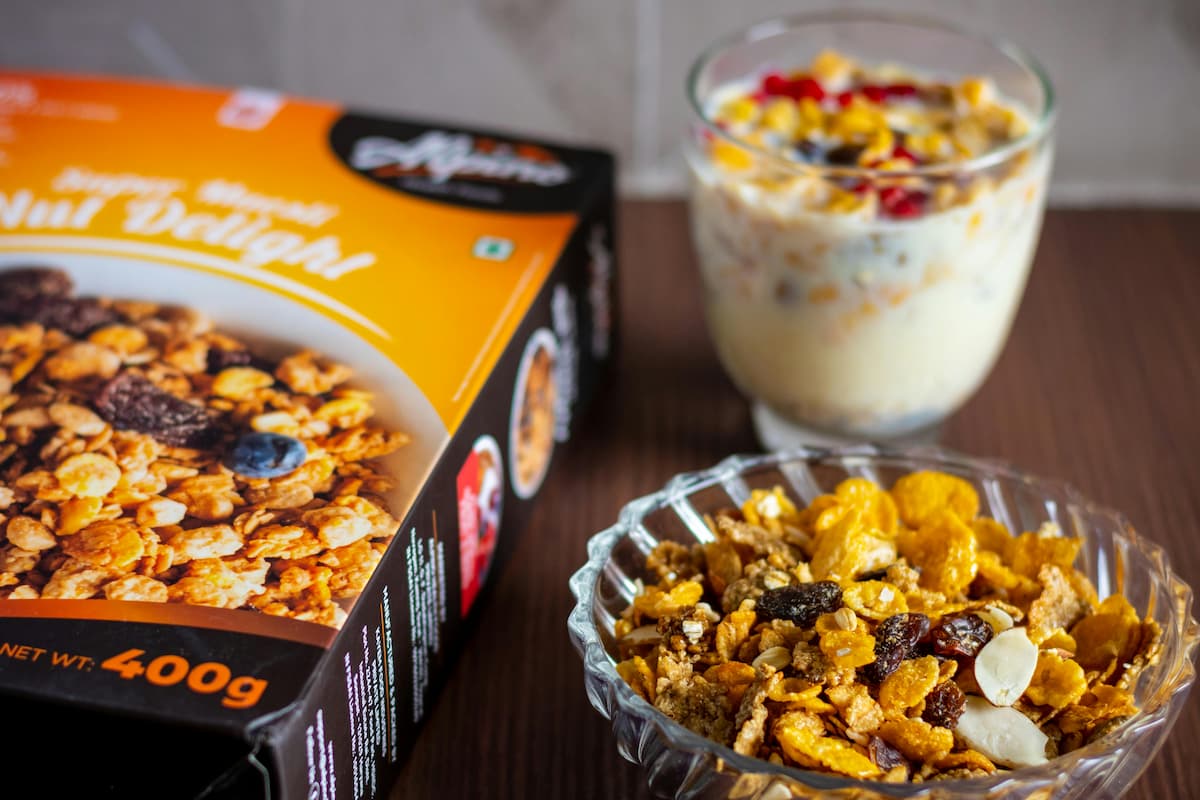
- High Country Conservation
- October 7, 2024
- Ask Eartha
Dear Eartha, I try really hard to stay up to date with the local recycling rules, but I am never quite sure what to do with my cereal boxes. Are they considered paper or carboard?
I can see where the cereal box can lead to some second guessing. It’s thicker than most paper, but not quite as thick as cardboard. Sometimes they are brown on the inside like cardboard, but many times they are white. Cereal boxes actually fall into a category called paperboard, and you can recycle them in the cardboard container at local recycling centers, or in your mixed single stream bin. Paperboard comes in many forms, so let’s explore a little more.
How to Spot Paperboard
Unlike corrugated cardboard, which is typically used for shipping items around the world, country, and to your home, paperboard is most often used to package food and other dry goods. In addition to cereal boxes, paperboard is used to package things like crackers, dog treats, cases of soda cans or 6-packs of beer bottles. But be careful, not all paperboard is created equal. As long as the paperboard is not coated with a waxy or plastic material, it can be recycled. If your paperboard has a waxy coating, for example, like frozen meal boxes or brown paper to-go containers, toss it in the trash.
Paperboard is made from several layers of paper, which makes it thinner and more flexible than cardboard. These qualities make paperboard the ideal candidate for transporting goods (it’s lighter than aluminum) as well as storing goods (it’s more flexible than plastic). There’s a very easy and fun way to detect if your box is actually paperboard. I call it the “Tear Test,” and it’s just what it sounds like. Take whatever material you have and tear it. You can rip just a small section, or completely rip it in half. If what you have is indeed paperboard, you will see the layers of paper and thicker fibers along the torn edges. Tearing your paperboard also makes it obvious if it has a waxy or plastic lining.
Summit County Recycling
As you may have noticed, or maybe you haven’t, we have two different ways to recycle in Summit County. We have three recycling centers, one in Breckenridge, Frisco, and Silverthorne, where people can drop off their separated items to be recycled. If you are recycling your cereal box here, it goes in the container marked for cardboard. Why can’t it go in the mixed paper? Well, paperboard’s thick and if it’s mixed with thinner paper, it causes a clog in the sorting machinery at the recycling center.
If you have recycling at home or your place of work, then that is what we call single stream recycling. Here in Summit County, paperboard/cardboard, paper, aluminum/tin cans, and plastic bottles, jugs, and tubs are all thrown into one bin. So just toss that cereal box right in there. Just remember to keep glass, milk/soup cartons, and food scraps out of this bin. Those items still need to be dropped off at the local recycling centers.
What Happens to Our Recycling
Did you know that cardboard and its thinner cousin, paperboard, is one of the most widely recycled materials in the world? Using your cereal box as an example, once you place it in the cardboard bin at the recycling center it is baled and sent directly to manufactures to be made into something new. If you put your cereal box in a single stream bin, its journey is slightly different. In this scenario it gets compacted and sent to Denver to be sorted and baled again before it gets sent to the manufacturer. Your cereal box can be made into new cardboard and paperboard, paper towels and tissues, newspaper & writing paper, and paper bags. Another popular use for recycled carboard/paperboard is the backing of gypsum board, also known as drywall. Your cereal box gets to live a new life as drywall in new buildings or houses. How cool is that?
Anytime you’ve got a recycling question, visit the High Country Conservation Center website and use the Recycling Search Tool to understand how to dispose of any item in the County And remember, when in doubt, throw it out! For more information call the High Country Conservation Center at 970-668-5703.
Ask Eartha Steward is written by the staff at the High Country Conservation Center, a nonprofit dedicated to waste reduction and resource conservation. Submit questions to Eartha at info@highcountryconservation.org.
